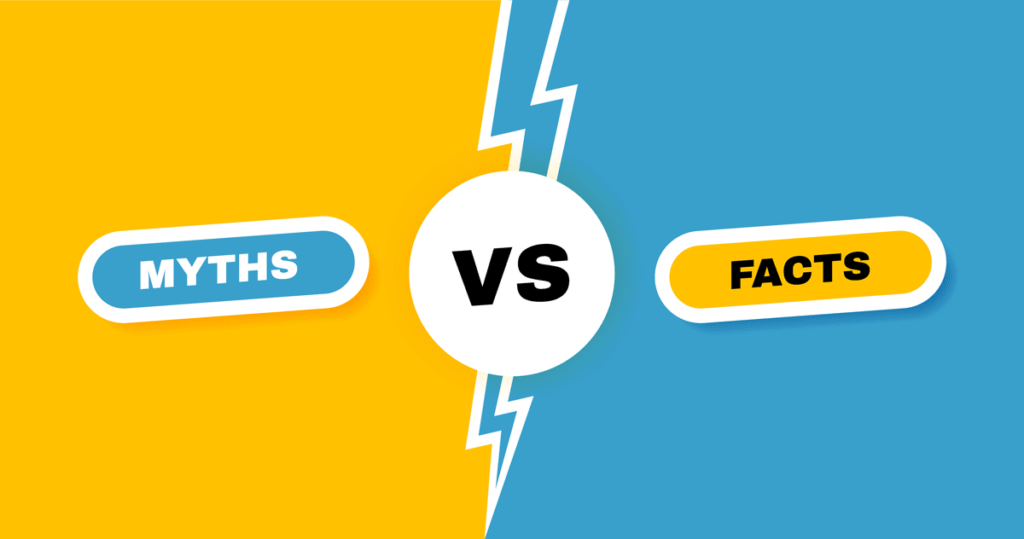
Busting Common Nutrition Myths: Facts You Can Trust
When it comes to health and nutrition, the internet is overflowing with tips, hacks, and miracle diets. The problem? Not all of it is backed by science. Some myths are so widespread that they’re treated as common sense, even though research shows otherwise. Believing in these misconceptions can not only stall your health goals but may even harm your well-being. In this article, we’ll bust some of the most common nutrition myths and uncover the real facts you can rely on.
One common myth is that carbs make you fat. In reality, carbohydrates are your body’s primary source of energy, and cutting them out completely can leave you feeling fatigued and cranky. The key is choosing the right kind of carbs. Whole grains, fruits, vegetables, and legumes are rich in fiber and essential nutrients that support digestion, heart health, and brain function. The real culprits are refined carbs such as white bread, pastries, sugary drinks, and processed snacks. These spike blood sugar levels and lead to overeating. Instead of fearing carbs, focus on balance and portion control.
Another widespread belief is that eating fat is bad for you. For decades, fat was demonized as the enemy of good health, but science now shows that healthy fats are vital for your body. Foods like avocados, nuts, seeds, olive oil, and fatty fish provide omega-3 fatty acids that support brain health, hormone regulation, and energy production. The fats you should limit are trans fats and highly processed fried foods, which increase inflammation and raise the risk of heart disease. Healthy fats are not the problem—it’s the unhealthy ones and overconsumption that matter.
Many people also believe that skipping meals helps with weight loss. Skipping meals may seem like a quick way to cut calories, but it often backfires. Going too long without eating can slow down your metabolism and trigger intense hunger, leading to overeating later in the day. Instead, eating balanced meals and healthy snacks throughout the day helps maintain energy, keeps blood sugar stable, and prevents cravings. While intermittent fasting can be effective for some, it should be done with careful planning and professional guidance, not by randomly skipping meals.
A fourth myth is that all calories are equal. While calories are indeed a unit of energy, the quality of those calories matters. For example, 100 calories of soda offers little more than sugar, while 100 calories of broccoli provides fiber, vitamins, and antioxidants. Nutrient-dense foods fuel your body, support immunity, and promote long-term health. Empty calories from processed snacks, fast food, or sugary drinks may fill you up temporarily but can lead to nutrient deficiencies and weight gain over time.
Another myth that persists is that detox diets are necessary to cleanse your body. You don’t need expensive juices, teas, or detox kits to “cleanse” your system. Your liver, kidneys, lungs, and digestive system already perform this function naturally every day. Extreme detox diets can actually harm your health by depriving you of essential nutrients and energy. Instead, the best way to support your body’s detoxification process is simple: eat a balanced diet, stay hydrated, exercise regularly, and get quality sleep. That’s the real detox your body needs.
Some people also think eating late at night automatically causes weight gain. In truth, weight gain is determined more by what you eat and how much you eat, not the exact time of day. Eating late at night doesn’t automatically cause fat storage. However, people often snack on high-calorie, low-nutrient foods like chips, sweets, or fast food before bed, which can lead to weight gain. If you’re hungry late at night, opt for a light, healthy snack such as yogurt, fruit, or nuts. It’s about food quality and moderation—not the clock.
Finally, there’s the belief that you need protein shakes to build muscle. While protein shakes are convenient, especially for athletes or those with busy schedules, they aren’t essential for muscle growth. You can get enough protein from whole foods like eggs, chicken, fish, beans, tofu, and dairy. Supplements should only be used to fill gaps in your diet, not replace real meals. For most people, focusing on whole-food protein sources along with strength training is enough to build and maintain muscle.
🌱 Final Thoughts
Nutrition is often clouded by myths, but separating fact from fiction is crucial for making smarter, healthier choices. Instead of following every new diet trend, stick to the basics: eat a variety of whole foods, balance carbs, protein, and healthy fats, stay hydrated, and listen to your body. By understanding the truth behind common myths, you’ll be better equipped to fuel your body, improve your health, and achieve long-term wellness.



